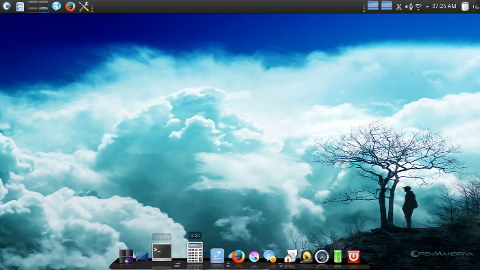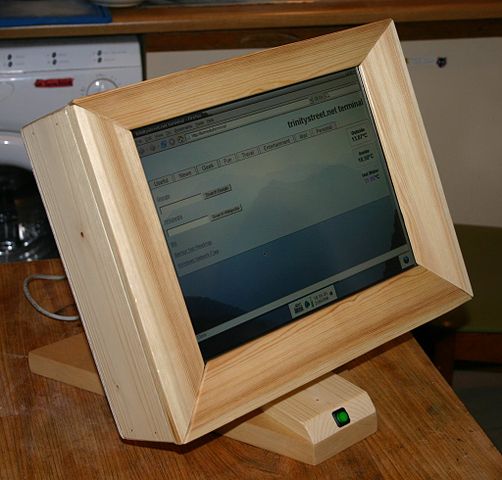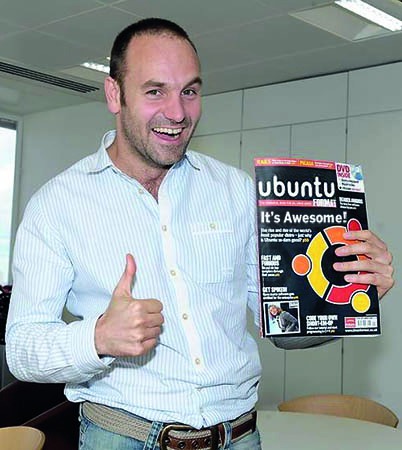11.12.13
Posted in GNU/Linux, Microsoft, Windows at 7:10 pm by Dr. Roy Schestowitz

Tsar Bomba mushroom cloud
Summary: New example of the high cost of Windows and a new example of FUD in the press, attributing an attack on SCADA to “Linux”
BY NOW, owing to leaks, people know where Stuxnet came from. Israel and the United States developed it and then used it to derail facilities in Iran. It is cyberwar, and it was started quite proactively. A lot of businesses around the world suffered from Stuxnet too, demonstrating quite clearly that the NSA’s criminal behaviour has a high price; others pay the toll, not just US taxpayers. Given the special relationship between Microsoft and the NSA, Stuxnet’s reliance on Windows is not surprising; it’s well known by now.
Putting aside the old news about Stuxnet, Kaspersky claims that Stuxnet infected a Russian nuclear plant. This is extremely dangerous because the US and Russia/USSR have been very close to nuclear war on numerous occasions in the past 30 years. A lot of people don’t know this because such material takes decades before it’s declassified.
“A lot of people don’t know this because such material takes decades before it’s declassified.”With clever phishing scams, not even strong passwords that computer scientists tend to choose can provide protection and it is no secret that Free software is penetrable due to incompetence during setup [1] or even delay in patching/maintenance (new examples in [2-8]). Underlying languages/frameworks can sometimes be the culprits [9,10], but that doesn’t mean that in practice it is easy to crack a GNU/Linux system. Evidence suggests that it is hard.
Having had Windows malware issues in space (USB sticks inside Windows), the International Space Station (ISS) recently moved to Debian GNU/Linux [1. 2]. But this weird article tells a dubious story. It says that ISS got a malware infection from Russian astronauts and then adds this sentence: “The reason is that the space station uses computer-controlled SCADA systems in order to manage various physical components of the satellite. As these systems are based on Linux, they are open to infection.”
“The problem is prevalent in proprietary software not just of Microsoft and the solution may be to simply ban the use of proprietary software.”Really?
Stuxnet malware has been targeting SCADA systems and they run Windows. We’ve sent almost a dozen E-mails back and forth to verify the facts and we are pretty sure the above is a lie. Sosumi says “the rhetoric is made as if linux is the problem [...] the whole thing is fishy [...] it’s like I said, the article is done as if linux was the problem” (it’s not).
iophk wrote: “I would think that the PR people for all the major distros would be all over that article correcting it and demanding a retraction.” He later said: “If you have any contact at Red Hat and Canonical, they might want to find some way of correcting this article [...] It makes it look like the previous Windows infections were Linux.”
Nice FUD they got there.
“Hackers”, in the mean time, are being demonised by Microsoft, which simply misuses the term [11]. The US government cannot seem to understand that relying on Windows in critical systems is a bad idea [12,13] because even fonts open a back door [14,15]. The problem is prevalent in proprietary software not just of Microsoft [16] and the solution may be to simply ban the use of proprietary software [17]. It is improperly reviewed. █
Related/contextual items from the news:
-
Black Hat research takes a deep look at SSL security and finds it lacking due to a number of common configuration issues.
-
-
-
-
-
-
-
-
In a classic watering hole attack, hackers compromised a well-known, respected high-traffic Website and planted malware in a bid to infect unsuspecting visitors. On Oct. 24, Google began to flag PHP.net as being a site hosting malware, i.e., potentially a watering hole.
-
-
-
-
Federal prosecutors have accused a UK man of hacking thousands of computer systems, many of them belonging to the US government, and stealing massive quantities of data that resulted in millions of dollars in damages to victims.
-
-
It’s such a simple concept. Data should not be executed. Images are data. But, no, M$ does not get that and randomly executes code contained in some TIFF images. Out of the bowels of M$’s complexity comes yet another invitation to millions of bad guys to post TIFFs all over the web damaging the systems of millions of users.
-
Adobe has revealed the massive hack it suffered a month ago was far bigger than initially reported, with attackers obtaining data on more than 38 million customer accounts.
-
The primary difficulty of cyber security isn’t technology — it’s policy.
Permalink
 Send this to a friend
Send this to a friend
Posted in GNU/Linux, Windows at 6:16 am by Dr. Roy Schestowitz

Michael Larabel, photo from Red Users
Summary: Signs of progress for GNU/Linux as a desktop platform owing to simultaneous improvements in the area of graphics drivers and game developers’ support
NAYSAYERS who insist that GNU/Linux cannot keep up with performance of games on Windows should eat their humble pie. Not only is Windows crippling the efforts and strengths of graphics cards (not supporting hardware features which Linux already supports); Windows also can’t demonstrate any performance advantages, based on new benchmarks that involve several different graphics cards [1]. This is noteworthy and now that Valve supports GNU/Linux there are a lot more games available on this free/libre platform, too. Looking at some recent news, there is just so much to say about gaming, even if most of them are proprietary.
GNU/Linux is on the rise, based on the Steam Hardware & Software Survey [2,3]. It has been only a year since it all started [4]. While it is true that ID Software goes the other way [5], Indie Game Bundle [6] and other efforts like Steam continue to deliver the goods. There are plenty of new games [7-12], including a lot which target Valve (GNU/Linux is one of several [13-18]). It’s a significant difference compared to where we were only a few years ago. SteamOS is still generating headlines [19,20] (it is GNU/Linux-based) because of NVIDIA, which also embraces Android games [21], drops 32-bit Linux support for CUDA [22]. NVIDIA’s work is constantly being tested by Michael Larabel’s benchmarks [23,24] who keeps a close eye on new releases [25], including those from AMD [26,27] and Intel [28,29]. He really helps them to compete against each other, trying to get positive publicity by treating Linux nicely. Benchmarks from his site [30] help compare performance of these “big three” and there is also good news from Wine [31] and X.Org Server [32]. It sure seems like now that games get tied to hardware (with GNU/Linux preinstalled), the race towards optimal Linux support bears a huge financial reward. █
Related/contextual items from the news:
-
Given the recent release of Microsoft Windows 8.1, at Phoronix we took 13 different AMD Radeon and NVIDIA GeForce graphics cards and compared the performance between Ubuntu Linux and Windows 8.1 with the same hardware and set of OpenGL games/benchmarks. For AMD and NVIDIA graphics cards with their official drivers, the performance is largely similar between the competing desktop operating systems but there are some performance exceptions.
-
According to the just-released Steam Hardware Survey from Valve, there has been a considerable increase in number of Linux-compatible games on Steam for Linux. This is indeed great for Linux users as hardware/software survey statistics for previous months were consistently down from when Steam debuted on Linux last year.
-
With Valve’s content distribution/social/DRM platform, Steam, having supported all three major desktop platforms for nearly a year now, I’ve been intending to write something about the Steam Hardware & Software Survey for some time. In the coming months, the impact of Valve’s recent SteamOS and Steam Machines announcements is likely to begin shifting some attitudes, perceptions and ultimately (dramatically or subtly) changing the landscape that the survey results depict.
-
So today marks a whole year of having the Steam client on Linux, how will you celebrate or do you still refuse to use it?
-
-
-
-
Voxatron – A world made of tiny colourful cubes sets the stage for a cast of cute characters on their quests to find courage, adventure, friendship, and sometimes just a way to get home.
-
Like Portal, SCALE is a fascinating first-person puzzler that replaces a traditional gun with an inventive new gameplay mechanic. In CubeHeart’s game, you have the ability to resize objects in the world: making bigger or smaller as you see fit. It’s easy to imagine the puzzling opportunities enabled by the scaling mechanic.
-
-
Indie heist game Monaco: What’s Yours Is Mine is going multiplatform. The developers announced on the game’s Facebook page that it is hitting Linux. Along with the game’s debut on Linux, it is also getting a bunch of new content as part of the package.
-
-
Cellar Door Games continued its Rogue Legacy by bringing it to Mac and Linux this week, where it’s available now via Steam. The “rogue-lite” that stars successions of heroes, each one differently debilitated, is also on the way to PS3, PS4, and Vita next year.
-
-
The original Trine (2009) first became notable to me after I had discovered that its developer Frozenbyte had given full permission to redistribute screenshots of the game under a Creative Commons license as long as an attribution back to them was preserved. This is a sadly underused marketing technique which also provides the added benefit of allowing a company’s game titles to have beautifully well illustrated articles on Wikipedia. By this point some of Frozenbyte’s earlier titles in the Shadowgrounds series (2005-2007) had already arrived on Linux in the form of somewhat underwhelming third-party ports, but with the knowledge I had gained from their policy regarding screenshots, I had discovered that the game’s original developers were well capable of trying new and better methods of interacting with their community. As such, I accordingly became quite confident that this situation would at some point improve upon itself.
-
-
In June, we have already reported about the Software company Leadwerks porting its game development toolkits Leadwerks 3 to Linux. This should not only help to promote Linux as a gaming platform but also as a platform for the game development. After reaching its goal on Kickstarter.com, Leadwerks has started the beta testing Leadwerks 3.1 on Linux.
-
You’ve crawled miles through the grass with a broken leg just to take that shot on your enemy, now it’s time to relive the entire Arma experience like never before – via a tactics game. As of today, you can get Arma Tactics through Steam for PC, Mac, Linux, iOS, and Android platforms. This tactic game will give you the full turn-based, close combat, strategy game experience.
-
Take a good hard look at Valve’s Steam Machine, because it’s the last time you’ll see it. Er, something like that. Only 300 of the metal beast above will ship to beta testers, and then Valve says it’s cutting off its own supply of Steam Machines. “We’re really building this as a test platform, and there are many machines that are gonna be made by third-parties. They’re the ones that will be available commercially in 2014,” Valve designer Greg Coomer told Engadget.
-
This week the folks at NVIDIA have suggested that their developer program GameWorks will not be limited to the likes of Linux and Android – not by any stretch of the imagination. NVIDIA made clear that not only would they be extending GameWorks support – developer tools for games, that is – for Ubuntu environments, but for SteamOS as well. In other words – those gaming developers hoping to optimize their games for Steam Machines with NVIDIA GeForce GTX graphics cards will be able to do so.
-
Monday’s update brings Android 4.3 Jelly Bean to the game device, and a new “console mode” turns Shield into a portable living-room game console.
-
If you are reliant upon NVIDIA’s CUDA computing parallel computing platform, hopefully you’re running 64-bit Linux. NVIDIA announced their plans on Friday to deprecate the 32-bit Linux x86 CUDA Toolkit and the 32-bit Linux CUDA driver.
-
For some weekend Linux benchmarking we tossed six NVIDIA GeForce graphics cards against four AMD Radeon graphics cards to get some idea for how the new OpenCL Linux benchmarks are running via the Phoronix Test Suite.
-
For those curious how Valve’s popular Team Fortress 2 game is performing atop the Source Engine with Ubuntu 13.10 and the latest NVIDIA Linux drivers, here’s updated benchmarks as we compare nine graphics cards spanning several GeForce generations.
-
The NVIDIA 331.20 Linux graphics driver has been released today. The NVIDIA 331.20 Linux driver has a workaround to support the Linux 3.11 and 3.12 kernels along with introducing NvFBCOpenGL. The new NvFBCOpenGL is for NVIDIA OpenGL frame-buffer capturing that’s high-performance and low-latency.
-
-
The Linux 3.13 kernel that is just entering mainline development stages already has Radeon DPM and HDMI audio by default. However, now there’s another Radeon DRM-Next pull and it provides support for the brand new AMD R9 290 “Hawaii” GPUs!
-
Intel has already queued up a fair amount of changes for their DRM graphics driver in the yet-to-be-started Linux 3.13 kernel, but there’s even more work ahead. A new set of patches were pushed into the Intel DRM driver’s kernel testing branch with a lot of “cool stuff” according to its developers.
-
The Core i7 4960X Extreme Edition processor is Intel’s new $1000+ CPU built atop their “Ivy Bridge” architecture and features six physical cores plus Hyper Threading. The i7-4960X is running at 3.6GHz with a 4.0GHz Turbo Frequency and is all around a super-fast processor. Under Linux, the performance is fantastic and it runs great on modern Linux distributions.
-
If you’re in the market for a low-end graphics processor that’s compatible with Linux and the available open-source Mesa/Gallium3D graphics drivers, here’s a roundup of benchmark results for seven different AMD, Intel, and NVIDIA graphics processors.
-
Wine 1.7.6 is now available as the latest bi-weekly release of the Wine software for running Windows applications and games on Linux.
-
X.Org Server 1.15 hasn’t been too exciting with not many prominent changes, but just ahead of the closure of the merge window, but the GLX rewrite has landed. The GLX rewrite will simplify the X.Org Server’s use of OpenGL and drops a whole lot of code in the process.
Permalink
 Send this to a friend
Send this to a friend
Posted in GNU/Linux at 5:45 am by Dr. Roy Schestowitz

OpenMandriva Lx 2013 (Credit: Mandriva Linux Chronicles)
Summary: Some new or upcoming releases of GNU/Linux distributions, including OpenMandriva and a Mac OS X clone
AS we pointed out the other day, Mandriva is very much alive, especially thanks to derivatives. OpenMandriva is not as idle as some believe and a dedicated pro-Mandriva (and derivatives) blog called Mandriva Linux Chronicles says that OpenMandriva Lx 2013 is almost ready for release [1,2]. It is being tested [3], but this comes at the expense of Mandriva [4].
For people who like the theming styles of Apple there is a new release of Pear OS (not Apple OS), which is basically another derivative with not-so-unique looks [5,6]. It was already reviewed by a leading distro reviews site [7].
In less significant news, people can now see the new release of Alpine [8], OS4 OpenLinux 14.1 [9], and SuperX 2.1 [10]. There is no lack of decent new releases, only lack of coverage in the corporate press. There’s no money in promoting something which promotes freedom and won’t buy ads from corporate press (or buy the corporate press itself). █
Related/contextual items from the news:
-
-
According to this post, OpenMandriva Lx will be seeing the light of day pretty soon: on November 22!
-
As promised, I took my OpenMandriva Lx 2013 RC1 home to install it to my desktop computer. A while ago, I installed the beta –after a tenacious fight, I must admit–, so it was time to upgrade it.
-
With my recent installation of OpenMandriva Lx RC1, Mandriva is no longer present in any of my computers. I had to wipe Mandriva 2011 on both my desktop and laptop to make room for the new comer.
-
-
Pear OS 8, a distribution based on Ubuntu and Debian that aims to make it easier for Mac OS users to switch to Linux, was released only one day ago, and now it’s time to take a closer look at it.
Pear OS 8 is host to a number of unique applications developed specifically for this Linux distribution, and Mac OS users will easily recognize the designed used by Apple.
-
Pear OS 8 does a very good job of copying the look and feel of Apple’s operating system. And it comes about the closest I’ve ever seen to providing a Mac-like experience in Linux (it even offers its own version of Apple’s iCloud service). It stumbles a bit though when it comes to software accessibility and organization, and that clearly needs to be fixed in an update or future release.
At the beginning of the review I mentioned the old saying that imitation is the most since form of flattery. But something else popped into my mind as I was using Pear OS 8. In the Lord of the Rings there is a description of Isengard – the fortress of the wizard Saruman – that seemed oddly appropriate to Pear OS 8.
In this case Linux is Isengard, and Saruman is the developer of Pear OS 8. Apple, of course, is Barad-dur, the Dark Tower in Mordor.
Here is the quote from the Lord of the Rings:
“A strong place and wonderful was Isengard, and long it had been beautiful [...]. But Saruman had slowly shaped it to his shifting purposes, and made it better, as he thought, being deceived – for all those arts and subtle devices, for which he forsook his former wisdom, and which fondly he imagined were his own, came but from Mordor; so that what he made was naught, only a little copy, a child’s model or a slave’s flattery, of that vast fortress, armoury, prison, furnace of great power, Barad-dûr, the Dark Tower, which suffered no rival, and laughed at flattery, biding its time, secure in its pride and its immeasurable strength.”
Pear OS 8 is suitable for beginner, intermediate and advanced Linux users.
-
On November 8, Natanael Copa has announced the immediate availability for download of the Alpine Linux 2.7.0 operating system for servers.
Alpine Linux 2.7.0 is a major release that includes some of the latest Linux technologies, as well as the newly released OpenSSH 6.4 software, a SSH protocol suite of network connectivity tools.
-
-
Permalink
 Send this to a friend
Send this to a friend
11.11.13
Posted in GNU/Linux, Google, Servers at 9:17 am by Dr. Roy Schestowitz

Summary: Many GNU/Linux job openings are coming to Finland after Microsoft pretty much killed Nokia
System administration is a massively-expanding area of employment for GNU/Linux professionals. My wife and I partly work in this area and Linux Journal has just dedicated a whole issue to it [1]. Powerful systems can be built using relatively basic UNIX/Linux skills [2]. Google, noticing that a lot of huge talent left Nokia after Microsoft entryism, sets up datacentres there [3-5]. Finland, the home country of Linux, has suffered more than enough from Microsoft. It’s time for it to get its revenge by liaising with Microsoft’s worst corporate nightmare, Google.
Google is known for its high wages and I should know about it because Google approached me regarding employment thrice in the past. Google competes with malicious companies like Amazon which pay Microsoft for GNU/Linux (patents). They have some powerful features [6], but we still urge people to boycott Amazon for a lot of reasons. Amazon is still quite Microsoft-centric and it shouldn’t be shocking because Microsoft is a next-door neighbout and many ‘former’ Microsoft managers are now managers at Amazon. As part of my job I work with Amazon every now and then and Rackspace is far better in every way (for so-called ‘cloud’ hosting). Unlike Google, Rackspace is actually doing something about software patents. As for Google, there are many issues with it; it’s hard to recommend it and the next post will say more. █
Related/contextual items from the news:
-
-
-
-
-
-
Permalink
 Send this to a friend
Send this to a friend
Posted in GNU/Linux at 7:56 am by Dr. Roy Schestowitz
Free software everywhere

Photo by Barney Livingston from Brighton, UK
Summary: Tablets and smartphones, where Linux is the standard platform, are not the only form factors where freedom-respecting software is good enough for everyone
GNU/Linux is no underdog anymore. HP currently pre-installs GNU/Linux and it does not charge “Microsoft tax” [1]. As one who uses an HP laptop to write this, the feeling of saying it is pretty good, putting aside some of the negative sides of HP (no company is perfect). Almost any bit of hardware can run GNU/Linux [2], so excuses like technical difficulties (e.g. drivers) no longer pass muster and demand from the public is definitely growing (Google and its hardware partners sell many machines with GNU/Linux pre-installed). In this age of GNU/Linux with Steam and Android with Play, even gaming is hardly a valid excuse [3] (neither for game developers nor gamers). There are plenty of decent (user-friendly) desktop front ends, and even the notorious Unity is liked by some [4]. Some would go as far as saying that “Linux [became] too easy” [5,6] for the shrinking market which is desktops [7,8]. It is safe to say “shrinking” because even Intel, the company which cashed in on desktops, is feeling the pinch [9] as hardware becomes smaller and more efficient in the ours rooms and the back rooms also [10]. Tablets and smartphones, suffice to say, are an area dominated by Linux already. That is a growth area. █
Related/contextual items from the news:
-
They do supply that other OS pre-installed but you can see the price difference between that and installing GNU/Linux.
-
Jeff Osier-Mixon is a community manager at Intel for The Yocto Project, an open source collaboration project that provides templates, tools and methods to help you create custom Linux-based systems for embedded products regardless of the hardware architecture. Basically: The Yocto Project allows development to happen without the worries of what hardware the code will run on.
-
Slightly off-topic from typical gaming related news, but I thought I would start a conversation since many devs and gamers I talk with often discuss this OS or that OS as “The Next Big Thing”™. The general consensus I get from the public is that Windows 8 got off to a rocky start given the changes they’ve made to the interface. From a gaming perspective Microsoft has only added incremental updates to DirectX 11 since the release of Windows 8.0. Microsoft today has released Windows 8.1 RTM and it comes with DX 11.2 (IMO nothing big, but some convenient updates). Despite public backlash against tiles and Windows apps, Microsoft decided to release the update via the Windows Store app (oh the irony). They also forgot to mention that you need a special update for Windows 8.0 in order to download 8.1. Not off to a good start. So I just finished the update and after waiting just a little over an whole hour for it to finish, I’m regretting it big time. My standard desktop account was replaced and I’m now logged in using my online Microsoft account. Seriously?
-
I just use the default Unity interface. It’s not perfect, but it doesn’t do anything egregiously bad like Windows does. I don’t like the launcher (I rely on Synapse instead), but I love the top bar with the unified messaging/audio/etc. The indicators on the sidebar are great, too.
-
-
It’s hard to believe, looking at the modern computing world, but there is still more to life than Windows or Unix… and today, most of the alternatives run on vanilla x86 hardware and are free.
-
Tablets and smartphones are PCs! The real problem, for some companies, is that they have been producing what Wintel wanted and not what consumers wanted, small cheap computers. Naturally, if you’re trying to sell these people big expensive computers, they won’t be buying. The market for personal computers is thriving, according Statista. Look at shipments per annum (millions):
-
-
Decision is puzzling given Intel’s potential to catch up in the tablet market
-
A new supercomputer being deployed this month in the U.S. is using solid-state drive storage as an alternative to DRAM and hard drives, which could help speed up internal data transfers.
Permalink
 Send this to a friend
Send this to a friend
Posted in GNU/Linux at 7:35 am by Dr. Roy Schestowitz
Outgrowing the need for advocacy

Photo by Hannes Grobe/AWI
Summary: The need for advocacy of the leading operating system (based on units installed or shipped) is diminishing
WAY back in the days, Penguin Pete and others like him — myself included — spent a great deal of time trying to take GNU/Linux from underdog to de facto standard. With Android and some other operating systems we are pretty much there now.
Penguin Pete, who became mostly provocative (rather than informative) and at times sought attention by insulting Edward Snowden and anyone who thought surveillance was a big deal, is now throwing in the towel [1], but in a sense this action of his might actually be confirmation of the status of GNU/Linux. It no longer needs many of us (GNU/Linux users) running around, shouting from rooftops, trying to spread it. In a sense, GNU/Linux advocacy is no longer really required. The future of FOSS is assured. It doesn’t mean that there are no dangers and even patent parasites like Microsoft.
There are other new examples which help herald the end of an era of advocacy. Jono Bacon starts/joins a new audiocast focused not only on GNU/Linux [2] (it is called Bad Voltage), Linux Format turns to mobile (where Android is), and people who spent many years writing articles about GNU/Linux in servers and desktops turn just to summaries of short bits of news [4]. The British Ubuntu audiocast has a new episode titled “Gone With The Ubuntu” [5], which probably speaks volumes. Hopefully they're right. █
Related/contextual items from the news:
-
Well, I’ve arrived at a conclusion today: Starting January 1st, 2014, penguinpetes.com will no longer be focused on Linux, Free & Open Source Software, or even technology in particular. Before you all cry “sell-out!” or just cry in general, there’s three very level-headed arguments in support of this…
-
-
-
-
Permalink
 Send this to a friend
Send this to a friend
Posted in GNU/Linux, Ubuntu at 7:15 am by Dr. Roy Schestowitz

Photo by Andre urbano
Summary: Mark Shuttleworth apologises for some recent controversial behaviour of the company he founded to make “Linux for human beings”
THE STORY at hand seems like a familiar one. It is one of those cases where by “mistake” one means “we got caught, so it’s a mistake.” Canonical already went after derivatives of Ubuntu, such as “Satanic Edition” (to name just one example where later on Jono Bacon and other community figures tried to quell and put out the fire). Trademark bullying from Canonical is not something new and the company is repeating old mistakes, so these are probably not mistakes.
Mark Shuttleworth posted this long response (“Comments are closed,” but some comments can be read via “Shuttleworth: Mistakes made and addressed” at LWN). It’s a bit of hogwash, but some people still appreciate this and consider it to be a sufficient apology. This apology does not please everyone, but we should give this man the benefit of the doubt. Maybe the decision to go after FixUbuntu was not his at all. “In an encouraging and refreshing move,” wrote Muktware, “Mark Shuttleworth, the founder of Ubuntu and Canonical has apologized for calling Mir opponents the “open source tea party” [...] He also apologized for the take down notice that was sent to EFF staffer Micah F Lee over fixubuntu website.”
To quote Shuttleworth himself: “Last week, someone at Canonical made a mistake in sending the wrong response to a trademark issue out of the range of responses we usually take. That has been addressed, and steps are being taken to reduce the likelihood of a future repeat.”
Muktware correctly points out that this created a controversy, but the author goes further by comparing Canonical to Apple. The author says: “That unprecedented move from Canonical (to sen[d] take down notice) had put Canonical in the league of Apple.
“All leading news sites criticized Canonical for this move and it turned out to be the worst PR disaster for Canonical.”
Nothing actually gets done about the original mistake, which makes Ubuntu some kind of informant to the CIA/NSA (through Amazon) regarding local user searches — a malicious behaviour that Windows has been ‘renowned’ for since about a decade ago (Microsoft is an exceptionally strong NSA ally, whereas Amazon is better known for its new CIA ties as official dossiers host/architect).
Bradley Kuhn (formerly FSF and SFLC) took note of Canonical’s behaviour, having done so before when it comes to copyrights. He also wrote about trademarks in other contexts. Kuhn said: “I was disturbed to read that Canonical, Ltd.’s trademark aggression, which I’ve been vaguely aware of for some time, has reached a new height. And, I say this as someone who regularly encourages Free Software projects to register trademarks, and to occasionally do trademark enforcement and also to actively avoid project policies that might lead to naked licensing. Names matter, and Free Software projects should strive to strike a careful balance between assuring that names mean what they are supposed to mean, and also encourage software sharing and modification at the same time.
“However, Canonical, Ltd.’s behavior shows what happens when lawyers and corporate marketing run amok and fail to strike that necessary balance. Specifically, Canonical, Ltd. sent a standard cease and desist (C&D) letter to Micah F. Lee, for running fixubuntu.com, a site that clearly to any casual reader is not affiliated with Canonical, Ltd. or its Ubuntu® project. In fact, the site is specifically telling you how to undo some anti-privacy stuff that Canonical, Ltd. puts into its Ubuntu, so there is no trademark-governed threat to its Ubuntu branding. Lee fortunately got legal assistance from the EFF, who wrote a letter explaining why Canonical, Ltd. was completely wrong.”
This trademarks issue/dispute which we previously covered (as did others, including some pretty major news sites [1, 2]) is not going away any time soon. Canonical is doing what’s known as “damage control” right now. As Wired put it, even Ubuntu boosters shy away: “The editor of the Ubuntu news site, OMG! Ubuntu!, says that Canonical’s email to Fixubuntu.com “does make for uncomfortable reading,” but Joey-Elijah Sneddon believes that the company is trying to preserve its trademark rights, not silence critics. Although OMG! Ubuntu has been critical of the privacy issues, Canonical hasn’t sent him a nastygram. Were “Canonical really out to suppress criticism, they’d have given me a bit of a prod before now,” he said in an email interview.”
The comments on this article — like many articles of this kind — have been rather hard-hitting too. To quote just the top 2 (not to quote selectively): “Canonical has become a total joke. What started out as a great effort, has degenerated to a disgrace for the whole Linux community.” Another person says: “Canonical and Ubuntu have jumped the shark.”
Ubuntu is a project that I install a lot for clients, even on the servers (not my choice), so I sure hope that Canonical will get its act together and make it comfortable — ethically — to do this. KDE developers, who have just reached some new milestones [1,2], feel similarly. Upsetting KDE developers [3,4,5] is not a smart thing to do, especially by comparing them to far right-wing politics. Based on a link that Will Hill shared with us (development portal), even Debian developers are growing increasingly impatient with Canonical/Ubuntu.
Muktware, a longtime Ubuntu booster (until Canonical called it a “troll” for not towing the party line 100% of the time), said:
Canonical has sent Micah. F.Lee, a staff technologist at EFF, a take-down notice for a website he started to educate people about fixing the privacy invasive feature Canonical has built in Ubuntu.
Lee started a website called fixubuntu.com, which he describes as “a place to quickly and easily learn how to disable the privacy-invasive features that are enabled by default in Ubuntu.”
He received an email from Canonical which asked him to practically shutdown the site as it uses the name Ubuntu in the domain and also showcases Ubuntu logo.
People who accuse Canonical critics of being “divisive” should take a deep look at Canonical itself. Calling people “trolls” or “Tea Party” for simply not agreeing is not just divisive; it is offensive.
Canonical could save itself a lot of trouble by just listening to many users who are upset about the privacy violations of trust, which are probably not worth the money Canonical gets from Amazon (its partners in other areas too). Why this insistence despite the backlash? Is Canonical telling the full story? We don’t know the terms of the deal/s between those two companies and we know that the CIA funds US companies to help spy on customers (based on a new report from the New York Times). The behaviour of the search bar has been controversial and widely vilified well before the EFF spoke out about it (the FSF weighed in much later, and only after I had spoken to Stallman about the subject). The solution is simple and the mistake is well known; the big mistake is not trademark bullying, it is privacy violation. It is worth focusing on the real mistakes. They are technical — not just ethical — mistakes. █
Related/contextual items from the news:
-
-
-
The conflict that has been brewing between the KDE developers and Canonical has finally exploded in a flurry of statements which show just how many problems the Mir display server has caused.
-
One of the most important KDE developers, Martin Gräßlin, has written a message to the Ubuntu developers, saying goodbye.
-
Following Mark Shuttleworth’s critical comments about those opposed to Mir and his statements being challenged, multiple KDE developers in particular have been expressing their outrage.
Aaron Seigo was the KDE developer to challenge Mark Shuttleworth to a public debate over his colorful comments regarding those opposed to Canonical’s Mir Display Server for Ubuntu. Two weeks have passed since suggesting this public debate and there’s still been no public response by Mark Shuttleworth, though Jono Bacon and others have commented on the matter.
Permalink
 Send this to a friend
Send this to a friend
Posted in GNU/Linux, Kernel at 6:42 am by Dr. Roy Schestowitz
Linux is inevitably getting more political

Summary: Linux — like GNU — has its liberal licence used as a selling point, especially in this age of “Peak Surveillance”
Mark Hinkle, who used to be a vocal proponent of GNU/Linux several years ago (he had published plenty of articles), spoke at LinuxCon and CloudOpen Europe [1], stressing that Linux is not just a piece of software to many of us. It is a game changer, not just to those who use if for technical advantages (e.g. the US Navy [2]) but also to those who rely on it for security and defence from intrusions, which are inherent in software you can neither modify nor review. One of the senior writers over at Linux Journal has an excellent article which points out how it relates to surveillance [3] and another new article [4] explains how code freedom (as in Free software) facilitates an escape from NSA snooping. In years to come we are likely to see privacy arguments increasingly being used to promote GNU/Linux, especially in nations which have many reasons to distrust or even fear the NSA. █
Related/contextual items from the news:
-
Collaboration can change the world and Linux and open source developers must use what they’ve learned to lead the way. This was the message delivered by Mark Hinkle, director of open source solutions at Citrix, in his inspirational keynote at LinuxCon and CloudOpen Europe in Edinburgh this morning.
-
The US Navy has a reputation for being much like its main form of transportation — a big ship that’s slow to change course. After decades of relying on large-scale warships like the aircraft carrier, the Navy has been working toward a smaller, more flexible fighting force. With the impending launch of the USS Zumwalt, the Navy will be moving well into a high-tech, Linux-powered future.
-
Linus was asked if the US government ever wanted a backdoor added to Linux. He nodded “yes” while saying “no”.
-
Foreign nations have been left reeling by news that the NSA has been happily monitoring the private communications of at least 35 world leaders, on top of its all-encompassing PRISM program that was leaked earlier this year. Ed Snowden’s leaks paint a miserable picture of the dystopian position we’re in now, with the US government doing whatever it takes to dismantle our freedom and privacy online.
Permalink
 Send this to a friend
Send this to a friend
« Previous Page — « Previous entries « Previous Page · Next Page » Next entries » — Next Page »

























 Content is available under CC-BY-SA
Content is available under CC-BY-SA